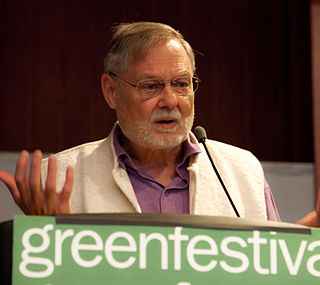A Quote by Hannah Arendt
... we have almost succeeded in leveling all human activities to the common denominator of securing the necessities of life and providing for their bundance. Whatever we do, we are supposed to do for the sake of "making a living;" such is the verdict of society, and the number of people, especially in the professions who might challenge it, has decreased rapidly. The only exception society is willing to grant is to the artist, who, strictly speaking, is the only "worker" left in a laboring society.
Quote Topics
Related Quotes
Socialism is the doctrine that man has no right to exist for his own sake, that his life and his work do not belong to him, but belong to society, that the only justification of his existence is his service to society, and that society may dispose of him in any way it pleases for the sake of whatever it deems to be its own tribal, collective good.
David Shi (historian of the simple life) describes the common denominator among the various approaches to simpler living as the understanding that the making of money and the accumulation of things should not smother the purity of the soul, the life of the mind, the cohesion of the family, or the good of the society.
The concept of the "information society" is both vague and all-embracing. Different participants meant different things by it. In practice, though, World Summit on the Information Society only dealt with a small number of issues: ICTs and human rights (to some extent), ICTs and development (to some extent), infrastructure finance and Internet governance. Very large aspects of what might have been included in the "information society" were not really discussed.
I have never said that human society ought to be aristocratic, but a great deal more than that. What I have said, and still believe with ever-increasing conviction, is that human society is always, whether it will or no, aristocratic by its very essence, to the extreme that it is a society in the measure that it is aristocratic, and ceases to be such when it ceases to be aristocratic. Of course I am speaking now of society and not of the State.
And if you look at society, the way it works, they are creating, from cradle to grave, left-brain prisoners. To advance in this society, you have to be good at passing exams in school, which are taking in left-brain information overwhelmingly. Then you go to the next level, and so on so that by the time you reach any level of significant influence in society or the institutions of society, you are fundamentally locked into your left brain. Or at least the majority of people are.
You grow up and recognize that in any educated secular society, there's no excuse for ignorance. You have to recognize in yourself, and challenge yourself, that if you see racism or homophobia or misogyny in a secular society, as a member of that society, you should challenge it. You owe it to the betterment of society.
You grow up and recognise that in an educated, secular society, there's no excuse for ignorance. You have to recognise in yourself, and challenge yourself, that if you see racism or homophobia or misogyny in a secular society, as a member of that society, you should challenge it. You owe it to the betterment of society.
Turkish society is divided not only culturally but also politically. You're either conservative or progressive. Islamist or secular. Right wing or left wing. This kind of division can be seen in any society, but in Turkey, the problem is that we are losing any kind of connection between groups and any kind of desire to understand one another. The groups hate each other and they are demolishing all bridges between themselves. So society is divided strictly.




































